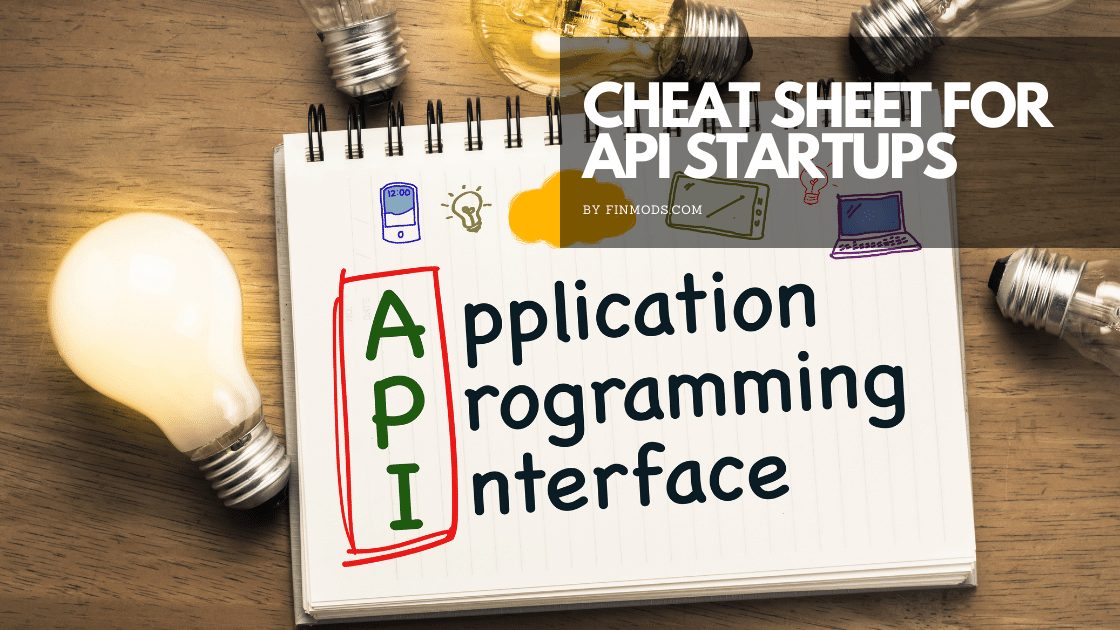- 1. What is an API startup?
- 2. What startup ideas are there for API?
- 3. Who are the customers of API startups?
- 4. What are the common problems of API customers?
- 5. Are there venture capital firms for API startups?
- 6. What are the popular business models for API startups?
- 7. What are the benefits of API startups?
- 8. What are the strengths of API startups?
- 9. What are the weaknesses of API startups?
- 10. What are the opportunities for API startups?
- 11. What are the risks of API startups?
- 12. How can you grow an API startup?
- 13. What are the challenges of API startups?
- 14. How can AI influence API startups?
1. What is an API startup?
An API startup is a company that specializes in creating and selling application programming interfaces (APIs). These businesses typically generate revenue by licensing their APIs to third-party developers who build applications that rely on the APIs. In some cases, an API startup may also offer consulting services or other forms of support to help customers get the most out of their APIs.
2. What startup ideas are there for API?
- A startup that provides an API for developers to access data stored in Excel spreadsheets, or in a variety of databases.
- A startup that provides an API for businesses to connect to their customers’ or employees’ data in Excel.
- A mobile app that allows users to book appointments with service providers in their area (e.g. hair stylists, dog walkers, etc.) via an API.
- A mobile app that allows users to order food from local restaurants via an API.
- A mobile app that allows users to book appointments with service providers in their area (e.g. hair stylists, dog groomers, etc.) via an API.
- A website that provides an API for developers to access data about businesses, products, services, or a variety of sources.
- A website that allows users to access data from a variety of API providers.
3. Who are the customers of API startups?
API startups target a specific market segment: developers who want to access data or functionality from other applications. The customers of API startups are usually other businesses that need the data or functionality that the startup provides access to. In some cases, individual developers may also be customers of API startups.
4. What are the common problems of API customers?
API customers often face several common problems. For example, they may have difficulty understanding how to use the API, or they may encounter errors when trying to make calls to the API. Additionally, they may find that the API does not meet their needs in terms of functionality or performance.
5. Are there venture capital firms for API startups?
This list contains 19 venture capital firms funding API startups in the seed stage and/or early stage.
What is a seed stage startup?
A seed stage startup is a company in the very early stages of development – typically pre-revenue. The company may have a product or service, but it is not yet commercially viable. The term “seed stage” refers to the early stages of a company’s development when it tries to find its footing and grow its business. Seed-stage startups typically have a small team of employees and a limited budget.
What is an early-stage startup?
An early-stage startup usually has developed a prototype that generates some revenue (post-revenue), but it might not be profitable yet.
6. What are the popular business models for API startups?
There are a few popular business models for API startups. The most common one is the freemium model, where the API is free to use up to a certain limit, and then users have to pay for additional usage. Another common model is the subscription model, where users pay a monthly or annual fee to access the API. And finally, there is the pay-as-you-go model, where users are charged based on their actual usage of the API.
7. What are the benefits of API startups?
There are many benefits to API startups. They include:
- APIs allow startups to quickly and easily launch new products and services without having to worry about the underlying infrastructure.
- APIs make it easy to integrate with third-party services, which can save startups time and money.
- APIs can help startups scale their business by making it easy to add new users and partners.
- Increased Efficiency: API startups allow businesses to connect with third-party applications and services in a much more efficient manner. This can save businesses a lot of time and money.
- Improved Flexibility: API startups offer businesses increased flexibility when integrating third-party applications and services.
8. What are the strengths of API startups?
API startups usually have a good understanding of how to build and scale their products quickly and efficiently. They also tend to be very focused on their customers and can provide them with the best possible experience. In addition, API startups often have a strong team of developers who can create robust and scalable code.
9. What are the weaknesses of API startups?
There are several weaknesses of API startups. One weakness is that they tend to be less capital efficient than other startups. This is because they often need to build out both the product and the API infrastructure, which can be costly. Another weakness is that they can be reliant on a small number of partners or customers, which can make them vulnerable if those partners or customers leave. Additionally, API startups often have to deal with complex business models and relationships, which can be difficult to navigate.
10. What are the opportunities for API startups?
There are numerous opportunities for API startups. One opportunity is to focus on a niche market and become a specialist API provider. This could involve providing APIs for a specific industry or geographic region. Another opportunity is to develop an API that addresses a specific pain point or solves a particular problem. This could be an API that helps businesses automate tasks or that provides data analytics tools. There are also opportunities to develop APIs that offer new capabilities or that provide access to new data sets.
11. What are the risks of API startups?
API startups are risky because they often rely on a single API provider. If the API provider goes out of business or discontinues the API, the startup will likely fail. Additionally, API providers can change their terms of service at any time, which can adversely affect the startup. API providers can also throttle access to the API, which can limit the startup’s ability to scale.
12. How can you grow an API startup?
A few key things to remember if you want to grow an API startup. First, it’s important to have a strong and well-designed API that meets the needs of your target market. Second, you need a good marketing strategy to promote your API and get it in front of potential users. Finally, it’s also important to have a solid business model that will generate revenue for your company.
13. What are the challenges of API startups?
One of the key challenges for API startups is to find a way to monetize their product. While some companies have been able to generate revenue through advertising or by charging for access to their data, others have struggled to find a sustainable business model. In addition, API startups need to ensure that their product is easy to use and integrates well with other applications. They also need to constantly update their data and keep up with the latest trends to remain relevant.
14. How can AI influence API startups?
AI can help API startups by optimizing and improving their processes. For example, AI can help with automatic documentation, testing, and monitoring of API calls. AI can also help improve the usability of APIs by providing recommendations on how to improve the design of an API or how to use existing APIs better.
Peter is a solopreneur in Salzburg, Austria, a husband, and a family father. He runs a little publishing company, and blogs about starting and running online businesses. In his spare time, he enjoys hiking with friends and reading the Bible, and sometimes he takes a trip in his roaring old black 2001 Jaguar XJ8.





